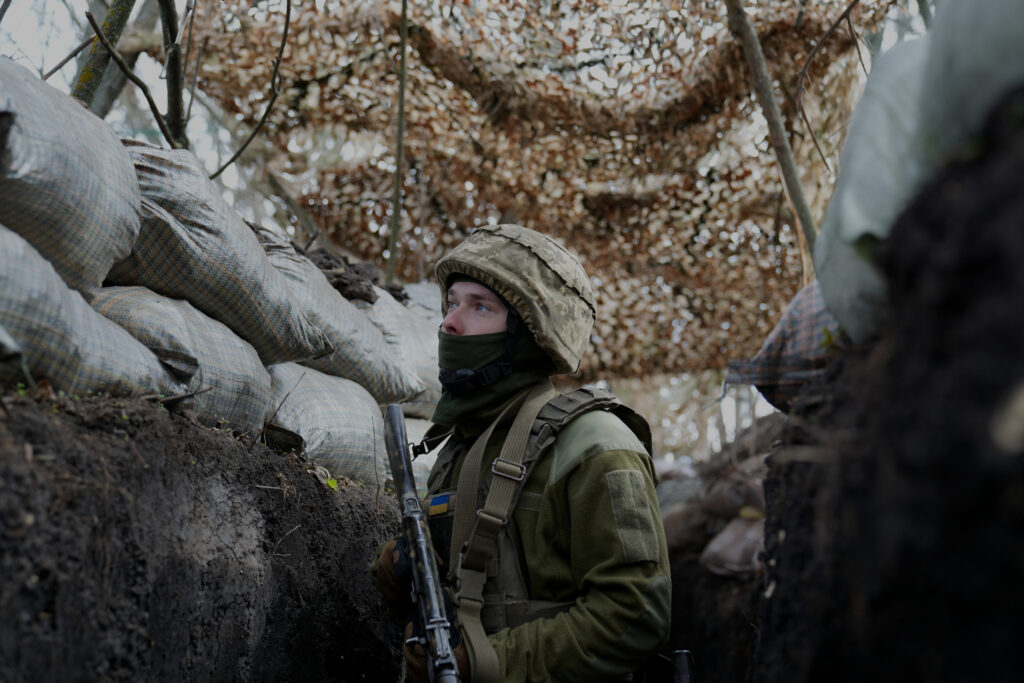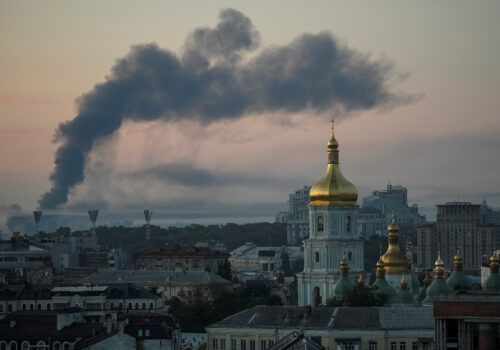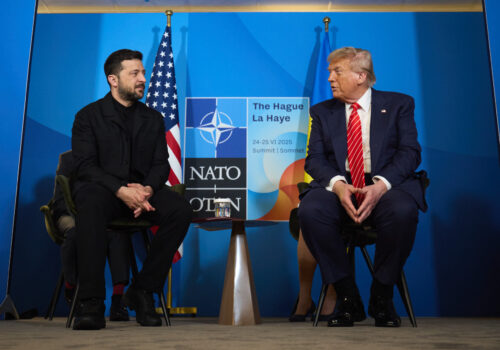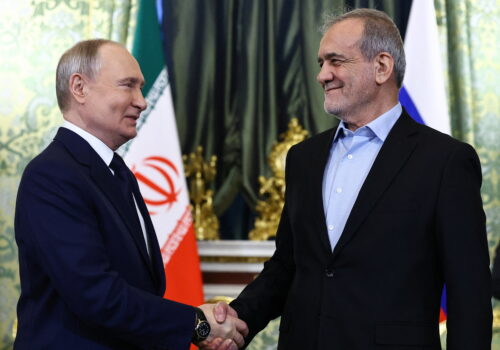Ukraine has called on the international chemical weapons watchdog in The Hague to launch a probe into Russia’s alleged use of toxic munitions against Ukrainian forces. Kyiv’s July 8 appeal to the Organization for the Prohibition of Chemical Weapons (OPCW) comes amid increasing international alarm over reports of escalating Russian chemical weapons attacks in Ukraine.
The United Kingdom has recently sanctioned Russian individuals and an organization for involvement in the transfer and use of chemical weapons in Ukraine. The new sanctions came shortly after German and Dutch intelligence services warned of Russia’s widespread use of banned chemical weapons on the Ukrainian battlefield.
These accusations are not new. The US first accused Russia of utilizing chloropicrin, a banned anti-riot agent first used by Germany during World War One, more than a year ago. However, with no significant costs imposed on the Kremlin in relation to these charges, it appears that Russia continues to expand the use of chemical weapons against Ukraine.
Stay updated
As the world watches the Russian invasion of Ukraine unfold, UkraineAlert delivers the best Atlantic Council expert insight and analysis on Ukraine twice a week directly to your inbox.
Dutch and German intelligence agencies claim to have evidence that Russia is increasingly using chemical weapons in a “widespread and standardized” way in Ukraine. Ukrainian military officials say that at least three Ukrainian soldiers have died in connection with Russian chemical weapon use, with more than 2,500 injured troops displaying symptoms consistent with exposure to chemical weapons.
According to Dutch Military Intelligence Agency chief Peter Resink, there have been thousands of instances of Russian chemical weapons use during the full-scale invasion of Ukraine. The Ukrainian authorities have reported 9,000 separate incidents. Resink emphasized that the occurrences of chemical weapons use in Ukraine were not the result of “some ad-hoc tinkering” but rather “a large-scale program.”
Russia’s alleged deployment of chloropicrin, which is banned under the 1993 Chemical Weapons Convention, has reportedly involved improvised munitions such as “filled light bulbs and empty bottles that are hung from a drone.” The chemical causes severe irritation to the skin, eyes, and respiratory tract, and is more toxic than regular riot control agents. Russia faces accusations of utilizing chloropicrin on the battlefield to force Ukrainian soldiers out of their trenches, leaving them vulnerable to enemy fire.
The European intelligence agencies also alleged in their joint statement that Russia has made “massive investments” into its chemical weapons program, with Moscow continuing to expand chemical weapons research and recruiting new scientists. This echoes earlier reports that Russia expanded a restricted military facility linked to biological weapons research following the onset of the full-scale Ukraine invasion in 2022.
Eurasia Center events

Russia’s alleged use of chemical weapons in Ukraine corrodes internationally recognized norms and rules of war established during the twentieth century. This includes the Chemical Weapons Convention, which Russia has signed and ratified.
Turning a blind eye to Russia’s alleged violations in Ukraine could set a concerning precedent and give the green light for other countries to develop their own chemical weapons arsenals. This would reverse the progress of the past century and set the stage for a dangerous new era of warfare.
During World War One, nearly 100,000 soldiers were killed in gas attacks and more than 1.3 million were exposed to chemical weapons. Although chemical weapons were not the deadliest force used on the battlefield, they brought “enormous psychological consequences,” and “should be classed not as a weapon of war, but as a weapon of mass terror.”
The issue of chemical weapons appeared to strike a chord with US President Donald Trump during his first term in office. When former Syrian president Bashar al-Assad was accused of carrying out a gas attack against Syrian civilians in 2017, Trump said it affected his attitude toward Assad. Trump later ordered a missile strike on the airfield where stocks of the sarin nerve agent were reportedly stored.
Dutch Minister of Defense Rubin Brekelmans has stated that Russia’s alleged use of chemical weapons must be met with pressure from the international community. “This calls for more sanctions, the isolation of Russia, and undiminished military support for Ukraine,” he commented. Addressing the allegations of Russian chemical weapons use, Trump has recently indicated that he will not permit such violations of international law to pass without a response.
Unless reports regarding the use of chemical weapons in Ukraine are addressed, other rogue regimes may be tempted to follow Moscow’s lead and deploy these weapons against civilians and soldiers alike. A safer future starts with holding Russia accountable for its alleged chemical weapons violations today.
Katherine Spencer is a program assistant at the Atlantic Council’s Eurasia Center.
Further reading
The views expressed in UkraineAlert are solely those of the authors and do not necessarily reflect the views of the Atlantic Council, its staff, or its supporters.

The Eurasia Center’s mission is to enhance transatlantic cooperation in promoting stability, democratic values, and prosperity in Eurasia, from Eastern Europe and Turkey in the West to the Caucasus, Russia, and Central Asia in the East.
Follow us on social media
and support our work
Image: (Credit Image: © David Allignon/ZUMA Press Wire)




